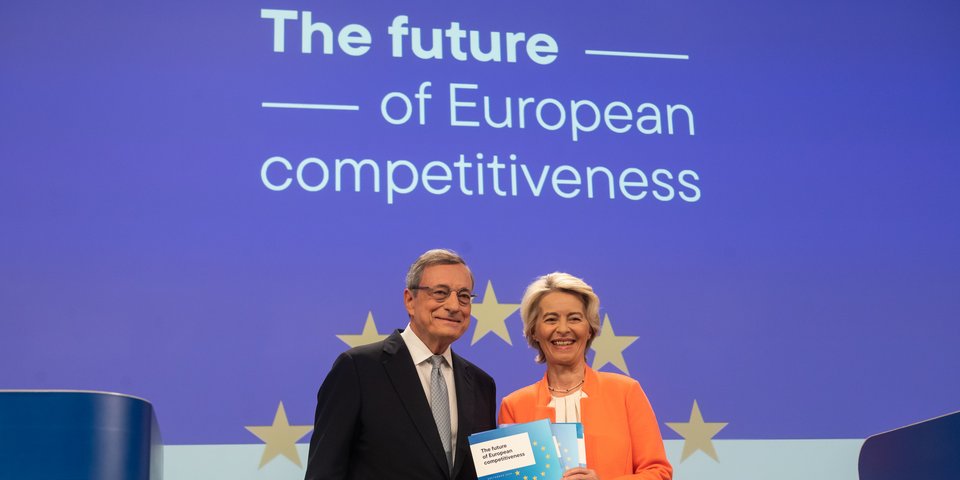 EU-Kommission
EU-KommissionSocial investments
The key to implementing the Draghi report.
AH – 12/2024
In a recently published Article,
the authors Anton Hemerijck and David Bokhorst took a closer look at the Draghi
report. As part of their analysis, they especially focussed on social
investment and its untapped potential to promote economic progress and social
well-being in the European Union (EU). They specifically addressed two key
approaches in the Draghi report: On the one hand, with the correlation between
social spending and economic growth and, on the other, with the call for a new
coordination framework for competitiveness.
Draghi report
The report
published in September 2024 proposes a comprehensive agenda to secure the EU's
long-term competitiveness. Among other things, the report points to a major
investment gap that could jeopardise the EU's future economic strength in
global competition. In order to close this gap, Draghi recommends an annual
investment of around 4 to 5 per cent of the EU's gross domestic product (GDP).
He also believes that the current European
Semester has proven to be ineffective and bureaucratic and is therefore calling
for a new European Competitiveness Coordination Framework that focuses
exclusively on competitiveness and should replace the European Semester.
European
Commission President Ursula von der Leyen recently incorporated the core
statements of the Draghi report into the Commission's Political
Guidelines as a new European narrative.
Social spending and competitiveness
Contrary to the statements in the Draghi
report, Hemerijck and Bokhorst argue in their article that there is no negative
correlation between social spending and economic growth or competitiveness. It
is not social spending per se that is decisive, rather the structure of social
spending. In their article, they use the examples of Denmark and the
Netherlands to show that there can indeed be a positive correlation between
competitiveness and high social spending. Both Member States have far
above-average social spending, measured as a proportion of gross domestic
product (GDP), and are particularly competitive in a European comparison. These
countries are characterised by equal distribution of social spending in
education, activating employment policy measures, social protection and the
integration of older people.
Social investments
In their article,
both authors show that social protection also has an investment character.
Education, active labour market policy, prevention and rehabilitation enable
people to actively participate in working life and prepare for future
challenges. In this regard, they refer to the final Report of the High Level Group (HLG) commissioned by the European Commission on the
future of social protection and the welfare state in the EU. According to both
authors, Draghi could have benefited from the HLG's comments on his report.
European semester is important
The researchers strongly disagree with
Draghi's call to replace the European Semester with a new coordination
framework for competitiveness. The European Semester deals equally with issues
of financial and economic governance as well as labour market and social policy
objectives. The Member States and the EU as a whole have benefited from the
resulting reforms. The authors cite the first joint meeting of the Employment,
Social Policy, Health and Consumer Affairs Council (EPSCO) and the Economic and
Financial Affairs Council (ECOFIN) as an example of how the European Semester
has successfully addressed future challenges. It was decided to jointly develop
the analytical framework for social investment and to make it part of the
European Semester.
